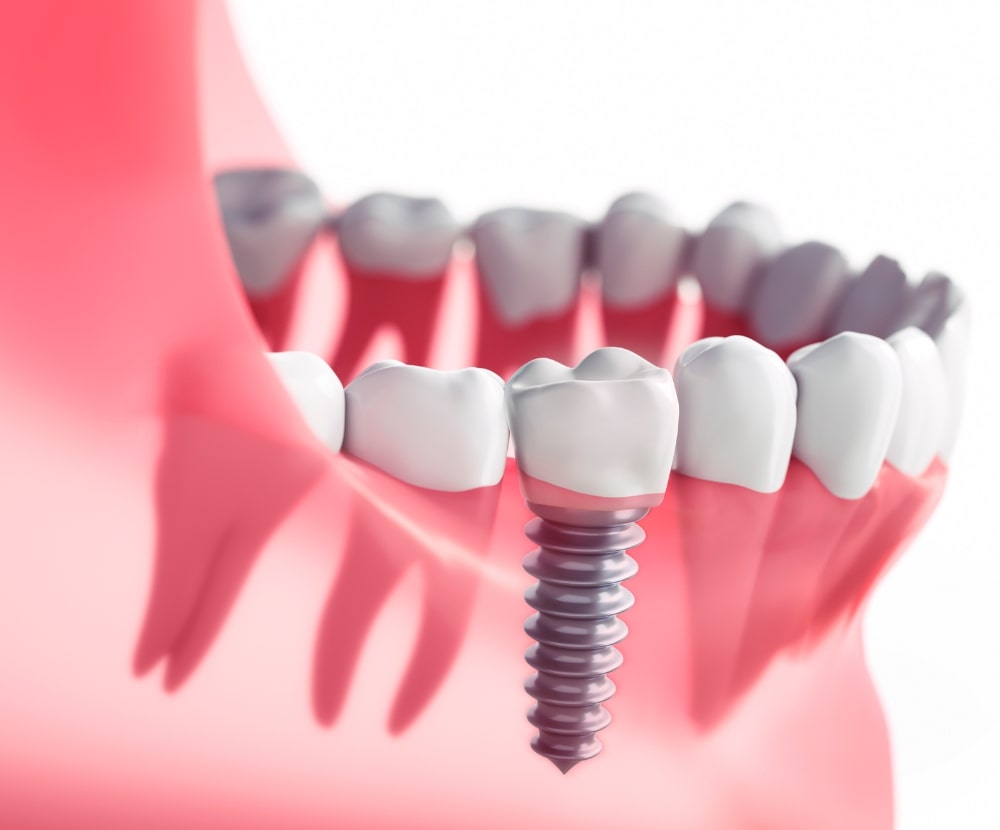
DENTAL IMPLANTS
Indications You May Want or Need Dental Implants
Many things can cause adult tooth loss. With improvements in dental care, dental implant treatments have become an increasingly popular and effective dental restoration solution. This treatment is stable and secure.
The dental implant procedure uses titanium/zirconium metal posts (screws or cylindrical shaped) that act as tooth roots. They are a long-term dental choice for a complete smile and improved oral health.
The Procedure
Based on their methods of surgical placement, they can fall into two categories:
- Endosteal implants (most common) – inserted into the jawbone by creating a hole in the jawbone itself.
- Subperiosteal implants (rarely used) – a metal framework placed directly on top of the jawbone beneath the gums with the metal post coming out of the gums.

CONSULT
Initial consultation for dental implant surgery, discussing the permanent new replacement teeth. In some cases, tooth extraction and bone grafting processes may be performed before placing implants.

EXAM
The patient’s mouth is thoroughly examined for any dental concerns. Dental X-rays or 3D CBCT scans of the jaws are taken. This helps in careful positioning of the dental implants and bone reconstruction.

BONE GRAFTING & REGENERATION
In rare cases the height and width of the jawbone at the implant site are increased. A special technique like guided bone regeneration can be done in some cases.

PLACING
Incision is made. Special drills are used to create a hole in the jawbone and implants are placed. Once healing is through, the healing cap is removed and a permanent abutment is placed over it.
Post-Treatment Care
- Following surgery, painkillers, and antibiotics may be taken for a few days and an icepack can help relieve mild discomfort and swelling.
- Patients must avoid hot food and drinks as well as sticky, hard or chewy foods in the initial days.
- Dental implants must be taken care of just like natural teeth.
- This includes following the proper dental care routine (brushing twice a day, flossing once a day, and rinsing with antibacterial mouthwash every day), along with routine dental check-ups.


